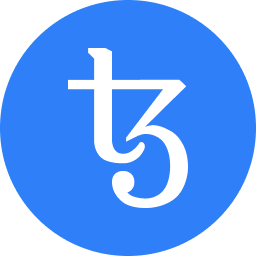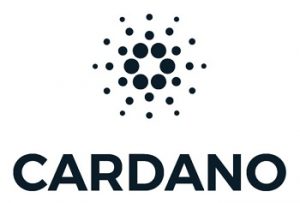There has been no looking back for Ethereum since its launch in 2015. Ethereum is one of the pioneers in revolutionizing smart contracts that have resulted in the mass adoption of blockchain technology in several business sectors.
The platform supports ERC-20 tokens which provides little better scalability and helps developers to build decentralized applications in the ecosystem. This is one of the reasons why Ethereum has grown into one of the most trusted blockchain platforms in recent years.
Lately, the platform has been facing certain limitations like slow transactions or lack of implementation of the proof-of-stake consensus mechanism, etc. Today, with the emergence of more upgraded blockchain platforms, Ethereum is facing some serious competition. Let us now look into some of the major alternatives of the Ethereum blockchain.

Best Ethereum Alternatives
There are many alternatives available and we have discussed about 9 different smart contract platforms for blockchain application in the previous article in details. In the list we have included most popular, competitive and best Ethereum Alternatives For Smartcontract and Dapps.
Tezos

Tezos is one of the most promising and evolving networks in the crypto world. It is different from the other blockchains and aims to provide full control to its users. After Ethereum, Tezos can be considered most decentralized platform among the other protocols. To reach consensus on appending the blockchain it requires a minimum of 80% of all stake coins. Tezos’ core code is owned by a foundation instead of a private entity very siimilar to Ethereum and EOS. Read: Tezos Wallets for XTZ.
Key Features Include:
- Tez or XTZ is the official token of the platform.
- Tezos does not support mining. Instead, users earn rewards by taking part in the PoS consensus algorithm.
- Tezos users have full control over the network and take part in making decisions that are deployed in the network. Users can make proposals. If the proposals are accepted, they can earn rewards.
- Decisions are taken based on collective votes.
Zilliqa
![]()
Zilliqa is first public, permissionless blockchain with successful implementation of sharding to achieve the high level of scalability up to 10k TPS. It is fairly new in the network and is a new-age blockchain network that operates on the sharded network technology. It uses a hybrid form of PoW algorithm based on the Practical Byzantine Fault Tolerance or pBFT. This not only increases the scalability but also improves the performance of the network. Read: Best Zilliqa Wallet For ZIL
Advatages:
- Successful implementation of sharding.
- High throughput, achieved up to 10k TPS.
- Zilliqa is highly secure and hasa unique consensus Practical Byzantine Fault Tolerance (PBFT).
- Ziliqa’s POW + PBFT algorithm takes much lower transaction fees.
Disadvantages:
- Due to a high throughput, large amount of data will be needed for storage.
- Zilliqa implements sharding, but the it is transaction sharding, not state sharding.
Ethereum Classic (ETC)

Ethereum Classic was developed out of a fork as a result of the DAO attack on 2017 on the Ethereum blockchain. Ethereum Classic bears all the features of the original version of Ethereum but at a much cheaper cost and aims to provide more upgraded features in the future. Ethereum Classic is completely different from Ethereum (ETH) and the two should not be confused. Unlike ETH, Ethereum Classic does not revert the transactions. They support smart contracts and work on proof-of-work or PoW consensus mechanism.
At present, most of the businesses are working on Ethereum blockchain. To run their daily transactions, traders have to pay in ether. This is a reason why the price of Ethereum is about 23 times higher than the Ethereum Classic. But with the rising popularity of ETC, the market scenario may change any time and the price of ETC may skyrocket soon. Read: Best ETC Wallets
Advantages:
- Traders now have an option to save money by switching to Ethereum Classic from Ethereum. Ethereum Classic runs on the same blockchain protocol and is much cheaper. So, running projects on Ethereum Classic might be more profitable for future businesses.
- Due to the rising popularity of ETC, it is believed that the price of Ethereum Classic may rise sharply as more and more investors and traders are now switching to Ethereum Classic.
Disadvantages:
- Ethereum Classic is yet to gain its popularity in the business community. Most of the regular users trust Ethereum or ETH for carrying out their transactions. They are reluctant to use ETC for their business programs.
- Ethereum Classic works on PoW or proof-of-work consensus mechanism while in Ethereum, you can shift from PoW to PoS (proof-of-stake) which is a major reason for its popularity.
- The Ethereum platform is planning to introduce new features in the future which may be a plus point compared to ETC.
- The competition between Ethereum Classic and Ethereum may not be fruitful for the business. Many loyal users of ETC use bitcoins and don’t support Ethereum.
Cardano

Cardano is one of the first blockchain platforms that were developed based on extensive scientific research. This new-age blockchain network is the brainchild of Charles Hoskinson, who is, in fact, one of the developers of Ethereum. Cardano is an open-source public blockchain that can be modified and developed according to the need of the developers. Cardano works on the Ouroboros PoS consensus algorithm that provides more scalability to the platform than Ethereum. Read: Best Cardano Wallet
Advantages:
- Aims to provide more scalability, interoperability, safety, and governance compared to ETH.
- The platform is backed by an expert team of engineers and consultants and above all Charles Hoskinson, one of the co-founders of ETH.
- Developers and users can refer to the white paper where all the technical details of the network have been given in detail.
- It offers more improved scalability.
Disadvantages:
- Cardano is yet to implement all of its features.
EOS

EOS claims to be the most scalable and feature-rich decentralized ecosystem in the crypto market today. It was launched in 2017 and is marked as one of the most profitable ICOs raising a total amount of 1 billion. The platform is suitable for developers especially those who want to launch their dApps. The platform gives full power to its users. Any change that has to be made has to go through a consensus vote taken by the users of the platform.
EOS works on DPoS or delegated proof-of-stake algorithm that safeguards them from DAO attacks, malware, and restricts corrupted dApps to infiltrate the system. Read: Best EOS Wallets
Advantages:
- A fully scalable platform open to further up-gradation and development.
- Dan Larimer, one of the developers of EOS is still working with the system.
- EOS currently has the highest throughput capacity of up to 4,000 TPS.
Disadvantages:
- EOS is similar to the other cryptocurrencies and needs to introduce new features.
- It is yet to be adopted fully in the mainstream.
TRON

Founded in 2017, Tron is a decentralized blockchain platform aims to bridge the gap between content consumers and content creators by eliminating the middleman. TRON runs one of the largest blockchain networks and is a highly scalable platform. Tron is one of the more distributed platforms but also the most centralized from a governance point. Tron’s core code is owned by a private entity unlike to Ethereum or Tezos. Read: Best TRON Wallets
Features:
- TRON can perform 2000 transactions in a second which is much higher then Ethereum
- Highly scalable smart contract.
- Opportunity to launch various dApps.
- TRON is compatible with EVM or Ethereum Virtual Machine.
- The platform supports TRC-10 and TRC-20 coins.
- It is API integrated.
- Supports decentralized exchanges.
NEO

NEO is popularly known as “Chinese Ethereum” was first launched in China. NEO and Ethereum both are the blockchain platform designed to host decentralized smart contracts and Dapps. Backed by the Chinese government, NEO uses a delegated Byzantine Fault Tolerant consensus algorithm while on the other hand Ethereum is not backed by any government and it is based on proof-of-work mechanism. NEO can achive a throughput of about 10,000 transactions per second (tps) whereas Ethereum currently supports only 15 TPS. Read: Best NEO Wallets
Advantages:
- High scalability.
- Multilanguage platform.
- High TPS or transactions per second.
- Implements soft forks.
Disadvantages:
- Multiple root chains.
- Subject to strict jurisdiction of the Government of China.











![[Sponsored] STG Energy Launches Breakthrough Cloud Mining Product to Democratize Crypto Mining 18 STG mining](https://coinfunda.com/wp-content/uploads/2025/02/STG-mining-520x293.webp)
![[Sponsored] Centralhash cloud mining platform easily obtains 100,000 US dollars of 19 central hash](https://coinfunda.com/wp-content/uploads/2025/02/central-hash-512x293.webp)